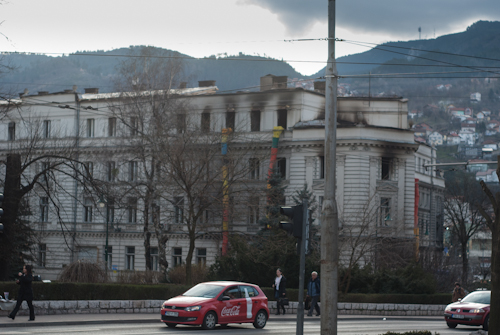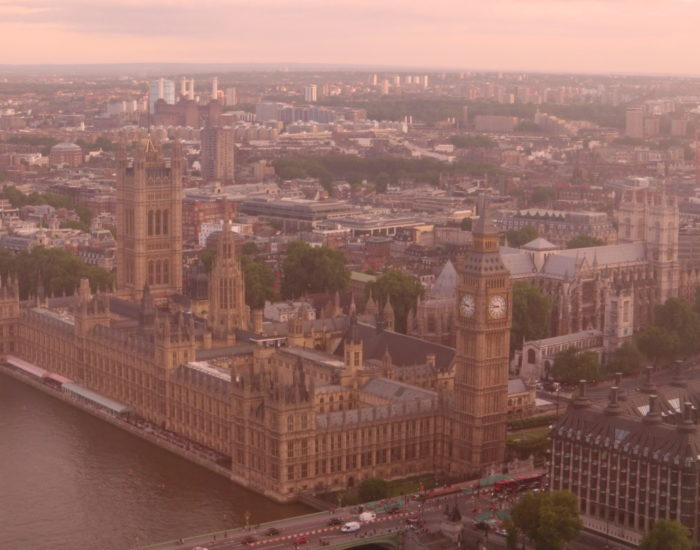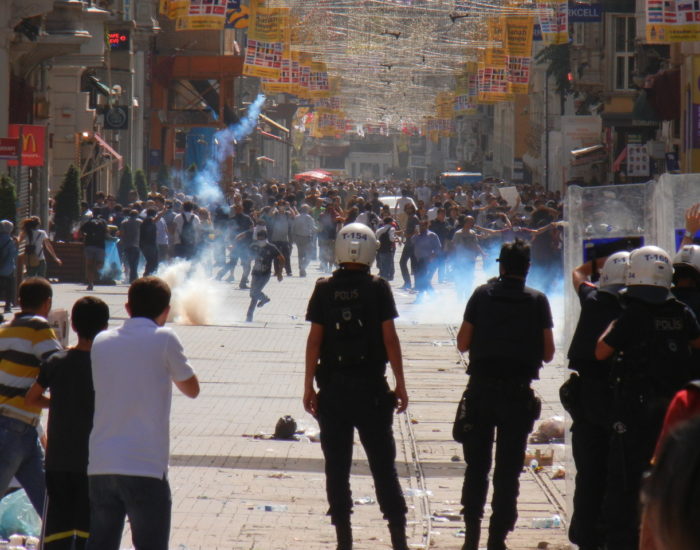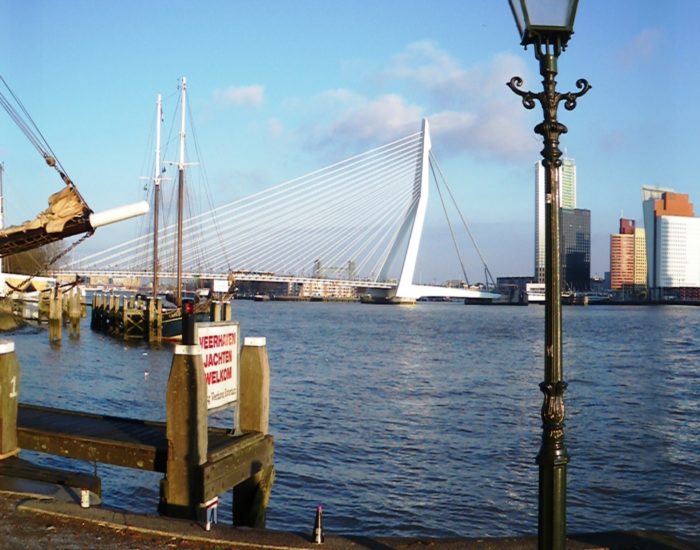A Bosnian Spring?
By Jan Liebnitzky.
20 years after the Dayton Agreement there is something going wrong in Bosnia and Herzegovina (BiH). Despite the implementation of a remarkable reconstruction and development program after the war until today, corrupt and incompetent political elites rein the country. Unemployment rate is at minimum 40 per cent and young people and rural areas are even worse off. Unsurprisingly, especially these groups express their dissatisfaction in the last days: students and unemployed went protesting first in the provincial capital Tuzla, where the shutdown of several factories triggered the protests. After a week these protests enlarged to Sarajevo, too.
Surprisingly, protestors burnt down a government building in Sarajevo already the second day of the demonstrations. Peaceful forms of protests such as banners and shouting slogans were missing. People say that classical forms of political participation, such as political party participation and elections are not enough for change in this country, because parties stay within their ethno-political boundaries. Asking why there have not been peaceful protests on the first hand, people often reply that this is “not useful for real progress” and has been done already in last year’s summer when people went protesting against the bureaucratic registration of new-borns.
After the initial raging protests, people gather more peacefully now but also less frequented. Citizen assemblies and councils for different policy issues are set up to draft political demands. In Tuzla some of these demands have been accepted already by the government. Inter alia the ongoing payment for resigned politicians has been cancelled. Further, many politicians resigned due to the protests. However, the broad public seems not to participate in the demonstrations – at most a couple of hundred maybe few thousand protesters filled the streets. This is why the legitimacy of the demands by the citizen councils is questionable.
And protests are not taking place everywhere in BIH: the Dayton Agreement divided the country in two independent entities fostering ethnical division. In Republika Srpska (RS) Serbians are in the majority. Bosniaks (Bosnian Muslims) and Croats are living especially in the Federation of Bosnia and Herzegovina. As small district called Brčko has a special status and is governed by both entities. Protests are occurring mainly int he Federation of Bosnia and Herzegovina and are not likely to expand to RS. On the contrary, Serbian politicians put effort in underlining the ethnic root of the protests. Mr. Dodik, the RS president, pointed out that “protesters are mainly Bosniaks” and that politics in RS is doing much better than in the Federation. However, protesters have all kinds of ethnic background, which is not a matter for discrimination within the demonstrations.
The rhetoric of Serbian politicians seems successful. In RS only small and infrequent protests occurred, often confronted with counter-demonstrations. This should be quite in the interest of neighboring states Croatia and Serbia. As much as the Dayton Agreement divided BiH in the inside, it still founded a sovereign and stable state in the Balkan region. Serbia and Croatia have little interest in a politically unsteady neighbor, since both of them are doing comparatively well economically and politically. Croatia is the youngest member state of the European Union (EU) and Serbia has taken up accession negotiations. What is BiH doing wrong, that it seems to float away from EU?

The European Progress Report 2013 to BiH about the economic and political situation concerning EU rapprochement is disillusioning in almost every point: Bosnian politicians have failed to implement important changes to the constitution with regard to equality and discrimination in political participation. After the European Court of Human Rights Sejdic-Finci ruling, BiH failed to allow Jews and Roma e.g. to get voted for presidency. Further, a common contact person for EU related issues in the government has not been created. The reason for these political shortcomings can be found in the self-blockade of the national government of BiH. Every eight months another of the total three presidents, representing an ethnic group respectively, rotates into office anew. Long-term sustainable and coherent political and constitutional reforms are thus obstructed from.
In sum, the protests show that of many people are dissatisfied with the political elites and their economic situation. This cumulated to violent actions during the demonstrations two weeks ago. It is questionable if this will bring decisive political change to the country. The country’s path to the EU will be blocked, if ethnical boundaries are not overcome to fight political standstill. Therefore, it is understandable that young and well-educated Bosnians try to leave the country or express their rage in the streets.
–
Jan Liebnitzky currently studies psychology and economics at TU Dresden. At the moment he finalises his thesis of diploma with the topic of moralizing processes and attitudes concerning humanitarian interventions.
Disclaimer
The views and opinions expressed in this article are those of the author.




